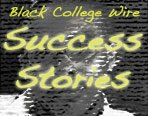|
 With the recent passage of the College Opportunity and Affordability Act of 2008 by Congress on July 31, college students can expect a decrease in educational expenses and better accessibility to college. With the recent passage of the College Opportunity and Affordability Act of 2008 by Congress on July 31, college students can expect a decrease in educational expenses and better accessibility to college.
One of the initiatives involves textbook prices. The cost of textbooks is at an all-time high and beyond the affordability of many students.
According to a 2005 report by the U.S. Government Accountability Office (GAO), within the past 20 years textbook prices have tripled, an overall increase double the general inflation rate for that time span.
The Howard University Bookstore Web site shows some of the factors of price increases include "author royalties, publisher costs, marketing, publisher and author taxes, and bookstore expenses."
The HUB sets retail prices of textbooks based on the industry's standard 25 percent margin.
The National Association of College Stores' "Student Watch 2008" report says during the 2006-2007 academic year, only 26 percent of students were able to purchase course materials, a large part being textbooks, using grants and scholarships.
With many students left making educational sacrifices, when it comes to textbooks and other materials, some students have been resorting to other outlets to get the materials at a lower cost.
Sophomore nursing major Lynn Pierre buys her books at reasonable prices from her peers.
"It's hard for some people to get books," she said.
Some end up with the hassle of sharing books or "may even take their first test without having a book," Pierre said.
Madyson Mitchell, a junior biology major, mainly exchanges her books with friends or gets them from upperclassmen instead of purchasing them from the bookstore.
"If I do buy a book from the bookstore, it usually pertains to my major," Mitchell said.
The GAO report states that the addition of CD-ROMs and other supplemental materials adds to increases in textbook prices. Often publishers only offer these bundled versions of textbooks to bookstores.
Also, the GAO reports, prices rise as a result of new editions of books created on an average of every three to four years.
Under the legislation, a provision aims to require publishers to offer bundled and unbundled textbook versions without withholding their full pricing to bookstores, and to provide students with advance details about textbook prices before semesters begin.
In the meantime, students may turn to student-founded resources that offer textbooks at lower prices.
One of those, Textbook Pals, was started by Howard senior economics major Obed Eugene near the end of 2006 to help students save time and money in the buyback process.
There is no charge to sell the books. Students receive 100 percent of their asking price for a book.
"A lot of bookstores don't give students the true value for their books," Eugene said. "Students are spending too much money on books and losing money during buyback period."
He also mentioned that Textbook Pals conducts book drives to collect donated books.
Neither Pierre nor Mitchell had heard of Textbook Pals, but both students appreciate what the company is aiming for.
Pierre plans to look further into the company this school year.
Eugene says that so far, upperclassmen make up the majority of participants, especially in terms of selling books.
However, all students are encouraged to utilize Textbook Pals' services. In particular, the company wants to see more freshmen take advantage of its services early on in the year.
Brittany Johnson writes for The Hilltop, Howard University's student newspaper, which originally published this article.
|






